Cargando...
Recursos educativos
-
Nivel educativo
-
Competencias
-
Tipología
-
Idioma
-
Tipo de medio
-
Tipo de actividad
-
Destinatarios
-
Tipo de audiencia
-
Creador
-
Transport between cells
EduBook Organización
- 4466 visitas
2.1. The circulatory system The circulatory system is made up of blood vessels (arteries, veins and capillaries). The heart pumps the blood through the blood vessels to reach all the cells in the body.…
-
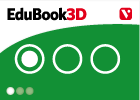
Choose. The restoration and the Liberal Triennium
EduBook Organización
- 4448 visitas
Choose the correct answer: What did Ferdinand VII do on his return to Spain in 1814? What did the restoration of absolutism mean for Spain? What is a pronunciamiento? Which pronunciamiento was…
-
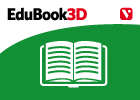
Before you start - Weather and climate
EduBook Organización
- 1 lo usan
- 4243 visitas
Didactic objectives Describe the structure and composition of the atmosphere, paying special attention to the characteristics and function of the ozone layer. Identify the factors that influence…
-
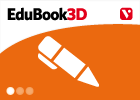
Answer. Animal nutrition
EduBook Organización
- 1 lo usan
- 3858 visitas
Look at the picture and answer the questions. How do animals get the energy they need to live? What is the difference between food and nutrient? Each cell in an organism needs nutrients and oxygen to…
-
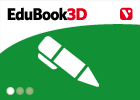
Check. Conquest, organisation and exploitation of the colonies
EduBook Organización
- 3944 visitas
Remember what you have studied in this section and answer the questions: What were the three stages involved in creating a colony? What professionals were involved in each one? Make a table to compare…
-

Interpret. Roman institutions
EduBook Organización
- 3871 visitas
Look at the diagram and answer the questions: What was the function of each of the institutions in the diagram? Which was the most important? Who was in the Senate? And the assemblies? What did the…
-
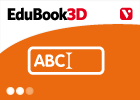
Answer. The Endocrine system
EduBook Organización
- 3825 visitas
Answer the following questions on the endocrine system: What are the chemical substances produced in the endocrine glands called? Where are these substances released? In addition to growth and chemical…
-
Remember - Animal reproduction
EduBook Organización
- 1 lo usan
- 3377 visitas
Reproduction is the only vital function that is not needed to keep an individual alive. It ensures the continuation of the species. Although sexual reproduction is a universal characteristic of animals,…
-
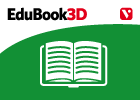
End-of-unit activities - The nervous system
EduBook Organización
- 3469 visitas
Right now, you are reading these words and you understand them. If you see food when you are hungry, your mouth starts to water. If you burn your hand, you move it away immediately. You automatically do…
-
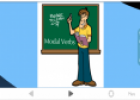
Modal verbs
Tiching explorer Organización
- 9 lo usan
- 8689 visitas
The resource consists of a (Prezi) presentation designed to help us understand the use of modal verbs (can, must, should, may). We recognize the correct function of the different modal verbs…
Te estamos redirigiendo a la ficha del libro...













